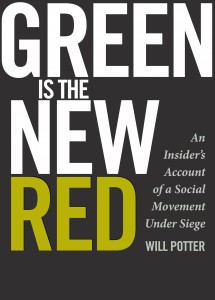Word has it that Facebook has about 900m active users at present; that is, 1 in 8 human beings. There are about as many people on FB today as there were on earth 200 years ago. Last year it generated $3.7b in revenue, and its stock is expected to be valued at a total of $87b or more when it goes public next month.
Most of this money, presumably, comes from ad revenue. I'm not an expert, but I understand that, in addition to a social networking tool (i.e. a big, interactive phonebook), FB is also a big cookie machine. (
Cookies are programs which track your online movement, and then use that data to target the ads you see.)
Punditocracy has gone so far as to suggest (on FB) that FB users are "the world's largest unpaid workforce." This is a weird and interesting idea--that consumers who produce advertising revenue by the way they consume are, thus, workers--which I'm too baffled by to get into here.
The website was founded less than a decade ago by a couple of Harvard undergrads. Check out a
graph of its users and you'll see a geometric increase begin circa 2008. As portrayed in the biopic
The Social Network, FB's meteoric rise in popularity relied on two strategies. First, it used a sophisticated approach to peer-to-peer connections. FB found ways to connect members to people they already knew or with whom they shared an important demographic. So, rather than having one big ocean of users, relationships were compartmentalized and prioritized. FB also took user-privacy seriously (obviously important). Second, FB thrived by becoming (and remaining)
the medium for peer communication. When everyone in your school is on FB, there's enormous pressure to become a member. FB exploited this strategy by conquering one arena at a time: first Harvard, then nearby colleges, then regional colleges, then all colleges, then high schools, etc. Again, it used compartmentalization to succeed: I don't care if FB is popular in general, but I care very much if it's popular within
my specific peer group.
So congratulations to Mark Zuckerberg and all those other hacker/entrepreneur wonks on their unprecedented success. Now, let's talk about democracy.
Democracy (from the Greek
demokratia) requires public conversation. If citizens can't talk and argue and negotiate and forge cynical alliances and voting blocs, then democracy doesn't work. If the people (
demos) can't coordinate among themselves, then they can't rule (
kratia). In ancient Athens and in colonial America, the place for public conversation and debate was the public square (
agora).
Then came the telegraph, and radio, and TV, and interwebz. 21st century communication technology has led 21st century political communities to be defined less and less in terms of physical location (e.g. Olympia, WA) and more and more in terms of demographic (e.g. libertarians against Obama). As
Neil Postman and
Marshall McLuhan argue, the medium through which we communicate exercises influence upon the content that we're able to talk about.
We XXI-centenarians speak and listen in the digital agora. We get our news, argue our debates, and build our political communities via mass communication. Physical location isn't irrelevant--I still live in Olympia, and I'm still affected by Olympia-specific issues like taxes and public transit policies--but even local issues get discussed online, e.g.
local-specific websites. You cannot unplug without exiting politics, and thus becoming, in ancient Athenian terms, an
idiot.
So:
1-Democracy functions in the agora.
2-Today, the agora is online.
And, 3-FB is one enormous part of the agora. Enormous, and sort of inescapable, because it's a closed system: either you're on FB, or you're not. Unlike email (where I can easily switch to an independent provider without losing access to my peers), FB as a mode of communication is monopolistic, a closed system. Either you're in, or you're out. The nature of closed-system social networks means that competition between providers isn't comparable to, say, competing newspapers or telegraph companies. I can read the Washington Post and write letters to the editor without excluding myself from the readership of the NY Times; I can call people who subscribe to AT&T from my Verizon phone. But I can't participate in Facebook without being a member; FB is a closed realm. As anyone familiar with the term "
antitrust," the
role of communications in politics, or the
Fourth Estate knows, this compartmentalization of communication is really, really dangerous to democracy.
Enormous and monopolistic and privately owned. This is one of the weird things about FB that it seems vital for users to discuss but which users, perversely, remain silent about: how is it healthy for our democracy-enabling agora to be
owned,
tracked,
sold,
regulated, and (potentially or subtly) censored by private owners? (As Postman would point out, this is less
Big Brother and more
Brave New World--or better yet,
Oryx and Crake; the iron heel of totalitarianism is not the only threat to democracy.)
I'm not writing this post to Zuckerberg or Congress. I'm writing it to FB users and to citizens. How can this possibly be okay, for our agora to be privately owned? How can this possibly be a good idea?



